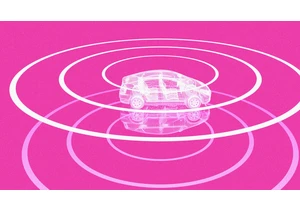The demand for electric vehicles is on the rise. Global EV sales more than doubled in the first quarter of the year, and about one out of every 10 new cars sold today is electric. However, the supply cannot catch up. The EV battery industry is not sustainable in its current form. Battery makers are facing shortages from all sides. Their most important raw material, lithium, is in short supply. There’s plenty of lithium in the Earth’s crust, but accessibility is an issue. Lithium from all mature lithium mines has been spoken for through 2026, and junior mines are at least eight years away from production. EV prices are rising due to these challenges with raw material accessibility and supply chain complexities. EV batteries are the No. 1 reason EVs are more expensive than gas-powered vehicles. These batteries can account for nearly 40% of the total cost of the car. It’s easy to find examples—the price of a midrange model of the new Chevy Silverado recently jumped by $12,000 to nearly $90,000. The spike has even affected the used EV market: A 2022 Rivian R1T pickup (factory price $73,000) is listed at OnlyEV for $125,000. Battery Companies Will Need Bold Steps to Survive The price of raw materials is going up while the battery cost target is coming down, so battery companies are getting squeezed. The hard truth is that most EV battery manufacturers will not survive. The market is dominated by the three largest EV battery producers (CATL, LGES, and Panasonic account for 64% of the global market share), while the top 10 battery manufacturers have captured more than 90% of the market. The battery industry is highly capital- and technology-intensive, which puts added pressure on the smaller companies. One possible outcome is that automakers acquire a battery company or become battery makers themselves. Car companies will have the battery technology and manufacturing capability, and the battery manufacturing no longer needs to be profitable as long as the final vehicle sale is profitable. To make it on their own, however, today’s upstart battery manufacturers will need to take a cue from an unlikely source: the oil industry. While oil companies don’t have a great reputation on environmental issues, their business model remains solid. If battery companies can assume the traditional role that oil companies have played—but in a more sustainable way—oil fields, refineries, and gas stations would be replaced by battery mines, manufacturing plants, and recycling stations. Battery companies would become the new oil companies and control the entire supply chain, and make car companies manufacturers of metal boxes with wheels. Another solution would be for carmakers and battery suppliers to team up on a battery-as-a-service (BaaS) business model, essentially leasing batteries directly to end users. The idea would be that the car company owns the battery, but the consumer pays for it over the life of the car. After that, the car company takes the battery back and recycles it, incorporating the materials into future batteries. This could be a way to keep up-front costs down, even though the total cost of ownership would be higher than it is currently. Some of these scenarios are starting to play out. Chinese battery giant CATL recently unveiled EVOGO, a modular battery swapping solution that separates the idea of vehicle and battery. The vehicle belongs to its owner, and the battery is a shared product and is leased by the consumers. However, BaaS doesn’t require battery swapping; even if the battery is not easily swappable, the economics of the battery and the vehicle can still be separated in a BaaS model. Today’s battery and car industries are poised on the brink of seismic changes. Not every company will be around to take part in the next era, and it will take innovative thinking on both sides to succeed.
Qichao Hu is the founder and CEO of SES, a leading manufacturer of lithium-metal batteries.
Melden Sie sich an, um einen Kommentar hinzuzufügen
Andere Beiträge in dieser Gruppe

As Zohran Mamdani declared victory in the New York C

A first public test of robotaxis by Tesla in Austin, Texas led to multiple traffic problems and dri

As you scroll through your FYP, a sweet elderly man or woman appears, asking for a moment of your attention to help save their struggling animal shelter.
“Please stay 8 seconds so I don’


Stephen Miller, the hard-line Trump adviser who helped craft some of the administration’s most aggressive immigration enforcement policies, is apparently profiting from the tools that make them po

Robotaxis are crashing into the rideshare market.
Drivers for apps like Uber and Lyft are growing worried about autonomous vehicles. Waymo has already deployed their vehicles acros

